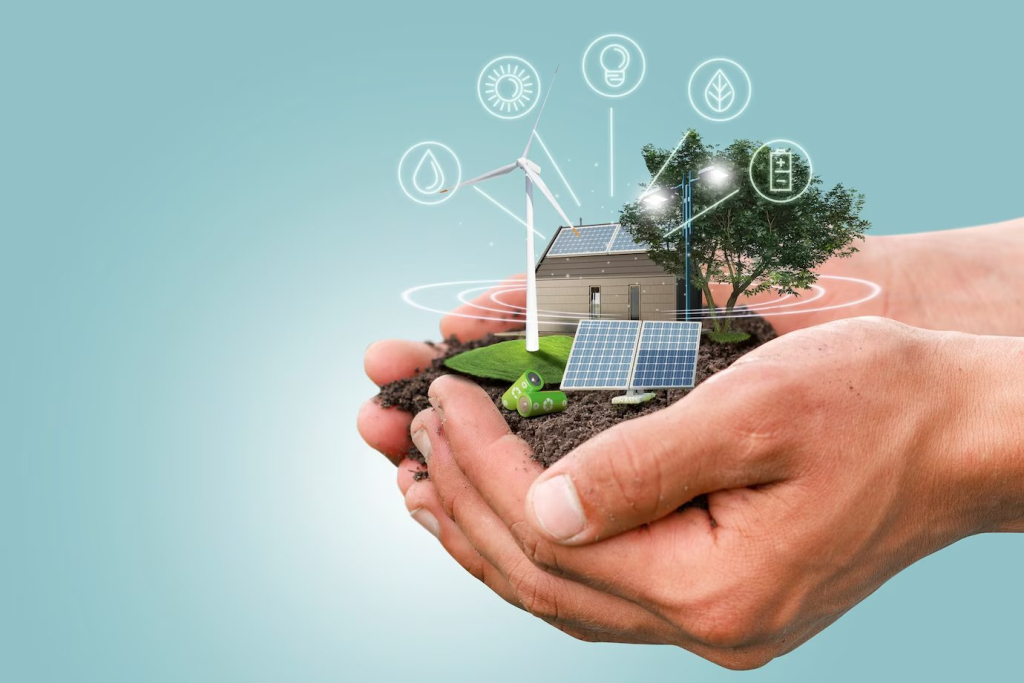The Role of Renewable Energy in Boosting Philippine Energy Independence

Introduction
Renewable energy is crucial to sustainable development, offering a cleaner and more sustainable alternative to traditional fossil fuels. Its significance lies in reducing greenhouse gas emissions, mitigating climate change, and promoting energy independence and security.
In the Philippines, renewable energy and renewable sources in general, are vital in diversifying the power generation mix and reducing reliance on imported fossil fuels.
The State of Energy in the Philippines
The Philippines has long been grappling with energy challenges. With a rapidly growing population and a booming economy, the electricity demand continues to rise. Historically, the Philippine government has heavily relied on fossil fuels, such as coal and oil, to meet its energy needs.
This dependence on imported fossil fuels exposes the country to price volatility and poses environmental risks due to high greenhouse gas emissions.
Government initiatives and policies supporting renewable energy
One of the critical policies supporting renewable energy is the Renewable Energy Act of 2008. This act incentivizes renewable energy developers, including tax exemptions and income tax holidays.
It also mandates using renewable energy in government buildings and facilities, further driving the demand for renewable energy sources.
In addition to the Renewable Energy Act, the government has also established the National Renewable Energy Program (NREP). This program aims to increase the share of renewable energy in the country’s energy mix by supporting the development of renewable energy projects. The NREP sets targets for installing renewable energy capacity and outlines strategies to achieve these targets.
Another notable initiative is the Green Energy Option Program (GEOP), which allows consumers to choose renewable energy sources for their electricity needs. Under this program, consumers can opt to source their electricity from renewable energy plants, such as wind farms or solar power installations.
This not only encourages the use of renewable energy but also creates economic opportunities for renewable energy developers.
Key Renewable Energy Sources in the Philippines
Solar power is one of the Philippines’ most promising renewable energy sources due to its high solar irradiation levels.
The country’s geographical location allows for ample sunlight throughout the year, making solar power an attractive option for power generation. Several solar power plants have been established nationwide, contributing to the country’s energy mix.
Wind energy is another significant renewable energy source in the Philippines. The country’s coastal and mountainous regions offer favorable wind conditions, making it suitable for wind power generation. Wind farms, such as the Nabas Wind Project, have been established to harness the power of the wind and generate clean electricity.
Geothermal energy is abundant in the Philippines due to its location along the Pacific Ring of Fire. The country has several geothermal plants tap into the Earth’s heat to generate power. Geothermal energy provides a sustainable electricity source and contributes to the country’s energy security.
Biomass energy, derived from organic materials such as agricultural waste, also plays a significant role in the Philippines’ renewable energy sector.
Biomass power plants generate electricity using agricultural byproducts, such as rice husks and sugarcane residue. This reduces the dependence on fossil fuels and helps in proper waste management.
The role of renewable energy in boosting energy independence
Reducing Carbon Emissions
One of the primary roles of renewable energy sources is to reduce carbon emissions. Traditional fossil fuels, such as coal and natural gas, contribute significantly to greenhouse gas emissions, leading to climate change.
By harnessing renewable energy, the Philippines can dramatically decrease its carbon footprint and contribute to global efforts in combating climate change.
Utilizing Abundant Natural Resources
The Philippines is blessed with abundant natural resources that can be used for renewable energy generation. Solar panels can harness the country’s ample sunlight, while wind turbines can exploit the strong winds in coastal areas.
Geothermal power plants can tap into the country’s volcanic activity, and biomass plants can utilize agricultural waste. By harnessing these resources, the Philippines can maximize its energy potential and reduce its reliance on imported fossil fuels.
Diversifying Energy Sources
Another role of renewable energy is diversifying the country’s energy sources. Traditional fossil fuels are subject to price fluctuations in the global market, leading to volatility in energy prices. By investing in renewable energy, the Philippines can create a more stable and secure energy sector. This diversification also reduces the country’s vulnerability to geopolitical tensions and disruptions in the global oil market for resources with foreign ownership.
The Benefits of Renewable Energy Sources
Energy Security
Renewable energy sources provide a more secure and reliable energy supply than traditional fossil fuels. The Philippines heavily relies on imported oil and gas, making it vulnerable to price fluctuations and supply disruptions. By investing in renewable energy, the country can achieve greater energy independence and reduce reliance on foreign energy sources.
Economic Growth and Job Creation
The development of renewable energy infrastructure creates new opportunities for economic growth and job creation. Foreign investors and international energy agency are attracted to the Philippines’ renewable energy sector, leading to increased foreign investment. This boosts the country’s economy and creates employment opportunities for Filipino citizens.
Environmental Sustainability
Renewable energy sources have a significantly lower environmental impact than fossil fuel. Solar, wind, geothermal, and biomass energy do not emit greenhouse gases or contribute to air pollution.
By transitioning to renewable energy, the Philippines can mitigate the adverse effects of climate change which has been the focus of many discussions and heated debates in recent years, and preserve its natural environment for future generations.
Economic opportunities and eco-businesses in the renewable energy sector
Developing renewable energy projects in the Philippines has created numerous economic opportunities and fostered eco-business growth. The renewable energy sector offers many job opportunities, from project development and construction to maintenance and operation.
The construction of renewable energy projects and similar technologies requires a skilled workforce, providing employment opportunities for engineers, technicians, and construction workers. Moreover, the operation and maintenance of renewable energy plants require a dedicated workforce, ensuring long-term job stability.
The growth of the renewable energy sector has also spawned eco-businesses that support the development and utilization of renewable energy resources. Companies specializing in manufacturing solar panels, wind turbines, and other renewable energy equipment have emerged, creating a local supply chain for renewable energy projects.
Furthermore, the increased demand for renewable energy has led to the establishing of energy service companies (ESCOs). ESCOs provide energy efficiency solutions and services to help businesses and households reduce energy consumption. This not only helps conserve energy but also promotes the use of renewable energies.
Conclusion
The Philippines is making significant strides in promoting renewable energy sources to boost energy independence and reduce greenhouse gas emissions.
The government’s initiatives and policies, such as the Renewable Energy Act and the National Renewable Energy Program, have created a favorable environment for developing renewable energy projects.
To achieve true energy independence, the Philippines must continue investing in renewable energy and reduce reliance on imported fossil fuels.
Support the Philippines’ renewable energy sector by opting for renewable energy sources for your electricity needs. Choose energy providers that offer renewable energy options and contribute to a cleaner and more sustainable future for the country.

Celebrate Life’s Milestones in Camella!
Make unforgettable memories in a Camella home.
Our communities are designed to elevate your living experience.


